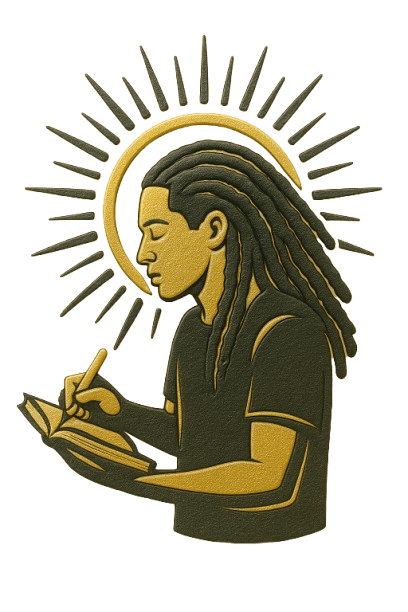Grab A Digital or Paperback Copy Today
A Book of Prompts and Practices - A True Companion to any Journal
I started creating Self Discovery Daily
I started creating the Self Discovery Daily journal companion shortly after I completed "A Healing Journal for Black Men". I wanted to create something that could be used by any gender, any ethnicity, and that would touch on the common threads of our humanity. It was also important to me that it be a functional companion rather than a workbook. I decided to create a book of prompts and practices rather than another journal.
Self Discovery Daily is not a journal, but rather a book that travels with you. Grab a copy below and see for yourself.
But first...
Here is a teaching and set of prompts that did not make it into the book. It's one of the painful realities of creating something you love: sometimes you have to leave things out.
Enjoy.
Grab Self Discovery Daily Here:
Enjoy Free Teaching and Bonus Prompts Below...
PS- Do me a HUGE favor. Please leave an honest review once you start to dig into the journal. It will help tremendously with visibility and encouraging potential new readers.
Grab A Digital or Paperback Copy Today
A Book of Prompts and Practices - A True Companion to any Journal
Thoughtless
Merriam-Webster defines thoughtless as "lacking concern for others: inconsiderate. rude and thoughtless behavior. a thoughtless remark." But I'd like to explore this word differently - in an unconventional, almost defiant way. Let's consider thoughtlessness as mind-freeness. Unlike mindfulness, mind-freeness is a state that happens before thought. It's rare to experience a truly thought-free, mind-free space. Various practices like breathwork, meditation, and self-abidance aim to cultivate this state. Ancient wisdom, such as Abhinavagupta's teachings in the Classical Tantric text Tantraloka, guides people to perceive from the core of their experience, without mental constructs overlaying reality.
This inner quality allows us to experience life without the mental labels, narratives, or worlds we usually create about ourselves and our experiences. It offers a chance to see life and truth more clearly. Sanskrit scholar Dr. Christopher Wallis describes truth in Abhinavagupta's teachings as "non-conceptual direct seeing into the nature of reality."
Non-dual teacher Rupert Spira expresses it this way: "Don't see from a point of view; be present simultaneously in the entire field of seeing."
Our thoughts greatly influence our emotions, energy, and physiology. Different thoughts can steer us down various emotional and energetic paths.
I encourage you to explore, through the upcoming teachings, prompts, and practices, what it means to temporarily suspend thought - to varying degrees - as a way to rest, reset your mind, and shift perspective in everyday life.
Being thought-free and mind-free, even for brief moments, strengthens inner stillness and quiet. It may bring moments of clarity when thoughts return. This practice might seem difficult, but I urge you to try. Gently attempt to pause your current stream of thoughts for a few seconds. When thoughts come back, suspend them again for another moment. Notice any sensations of relief, lightness, or spaciousness - these are some of the inner qualities that thoughtlessness, or mind-freeness, fosters.
Journal Prompt:
Reflect on the concept of suspending thoughts as a practice for well-being. Does this idea resonate with you? Why or why not? What reservations, if any, do you have about it? How do you imagine this practice might impact your life if you were to incorporate it into your daily routine? Write about potential benefits and challenges you foresee in adopting this approach.
How might practicing mind-freeness affect your ability to listen and communicate with others?
Reflect on a time when you experienced clarity after a period of mental quietude. What insights emerged?
Consider the phrase "mental overlays on reality." How do your personal experiences, beliefs, and thoughts act as filters in your daily life?
Describe a moment when you experienced a thought-free state. How did it feel?
What does the concept of mind-freeness mean to you personally?
List three daily activities where you could practice brief moments of thoughtlessness.
How do you typically react to the constant stream of thoughts in your mind?
GRAB A COPY TODAY
One of a Kind Journal Companion Your go-to guide for meaningful journaling. This companion offers prompts, activities, and focus points to fill any journal you pick. Come back to it as your life changes, using its ideas to spark new thoughts in future journals. A helpful tool for getting to know yourself better, one page at a time.
